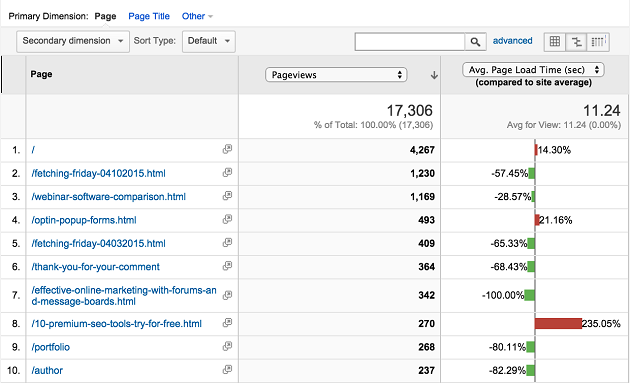Every Second Counts: Why Page Speed Should Be Your Next Focus
Website speed and page load times are important for both search engine rankings and user satisfaction, so optimizing your website's performance is key.
Website speed and page load times are important for both search engine rankings and user satisfaction, so optimizing your website's performance is key.
If you have already invested in making your website mobile friendly for Google’s latest algorithm update, then you are ready for the next step: optimizing your pages to load as quickly as possible. Otherwise, all your hard work toward gaining the top rankings in desktop and mobile search will be in vain.
In 2010, Google announced that site speed is a factor they take into account for search rankings. Since this revelation, they have introduced specific tools for webmasters to analyze and improve their page load times.
First, there is the PageSpeed Insights tool. Enter your website URL and it will show you your speed score for both mobile and desktop devices, plus suggestions on how to fix each of the elements that are slowing your website down.

Then there are the Site Speed reports inside Google Analytics. These reports, in the Behavior Section, will show you average times for page load, redirection, domain lookup, server connection, server response, and page download.

You will also find detailed reports about your site speed in relation to specific browsers, countries, and pages.

Google also recommends monitoring your website’s speed performance in the Google Webmaster Technical Guidelines. In addition to their own tool, they suggest using YSlow and WebPageTest.
Even if you don’t think that page load affects your Google rankings enough to matter, you should be concerned about it from the user experience side of things. Particularly, studies have shown that:
These are the real reasons why you need to ensure that your website loads as quickly as possible. Even if you have the number one ranking in search results for your target keyword, you are wasting all of your marketing efforts if your visitors are leaving due to slow loading times.
The website hosting provider and technology you choose can have a significant effect on your page load times. Dedicated hosting solutions are preferable over shared hosting so you do not have to worry about other websites on the same server as yours slowing your website down.
Another option is to look for services that optimize the delivery of content. For example, load-balancing services can help by distributing an influx of traffic across multiple servers, maximizing website performance and reducing the load that would normally be placed on one server. You can also use a content delivery network, which will deliver web pages and content to website visitors using a server closest to that visitor’s geographic location.
The technology you use to build your website will also play a major role in the performance of your website. A study by Business2Community showed that Shopify, WordPress and Joomla have the best page load times for ecommerce and content management systems, while Website Tool Tester found Webnote, Yola and Weebly to be the top desktop website builder platforms. Mobile website speed performed poorly for all website builders, scoring 68 or less on Google PageSpeed.
The fastest WordPress themes include Schema, The Foundly and Braxton, according to tests by Colorlib. Compared with Facebook, Disqus, Livefyre and IntenseDebate, WordPress’ base comment system also loaded fastest, Pingdom found.
One area that every webmaster can work on to increase website speed is the content. Simple changes, such as using smaller image files, can help reduce the load time of your pages. Look for widgets on your website that might be increasing page load times, such as those that bring in your latest activity from social networks.
You should also regularly review analytics and other tools you use on your website. For example, you might have tested several platforms for analytics, heatmaps, and website optimizers. If you’re not actively using them all, you should remove the code from your website as each one can slow your website.
Google PageSpeed Insights tool can suggest specific ways to fix other issues on your website that might slow your page load, such as minifying website code, leveraging browser caching, and enabling compression.
For further research, you can use BuiltWith browser extensions to see what technology your favorite, fast-loading sites use.

Homepage image via Shutterstock